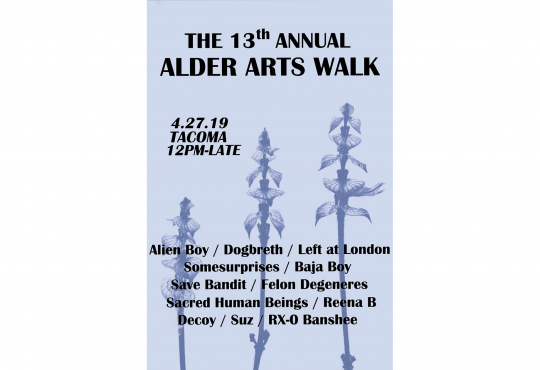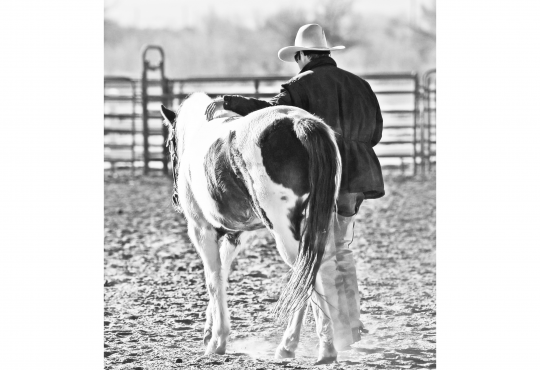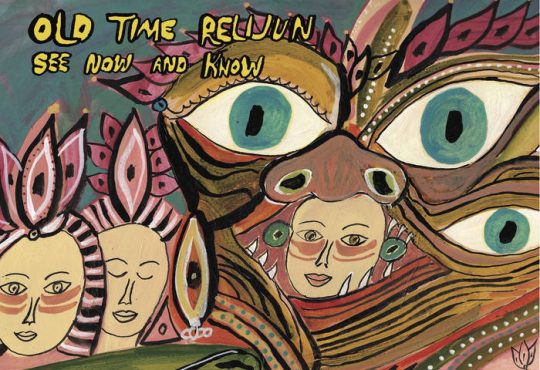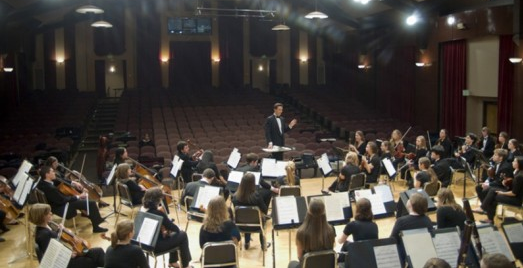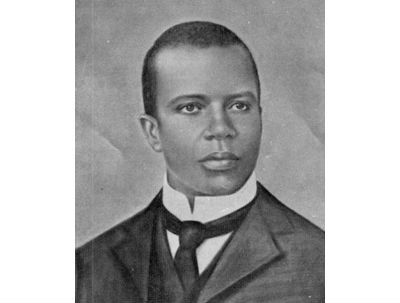Modern violinist Andrew Bird released his tenth studio album “Hands of Glory” on Oct. 30 as a musical companion to his last collection, “Break it Yourself.” This album highlights Bird’s creativity as an artist; incorporating a variety of genres, but always highlighting the violin in different ways. Because Bird was trained in the Suzuki method of violin, in which one is trained completely by ear, he possesses the freedom and creativity with the interest to bring the violin into the spectrum of modern rock.
Bird produced this album with minimal studio work post-performance, hoping to preserve the passion with which he created the music. Bird emphasizes that “he’s not a confessional singer/songwriter” and focuses his lyrics instead on themes of self-reliance and isolation, and makes his lyrics vague enough to apply to each person’s life in different ways. He also does this, he says, so that he can have a different experience performing these songs night after night as the lyrics can mean different things each time.
“Hands of Glory” has a highly Western influence, more so than his other albums that have focused more on jazz, swing, or folk. This is seen particularly through the introduction to the second track on the album, titled “When that Helicopter Comes,” which begins with a very raw, traditional Western feel but still allows for the role of the violin to seamlessly take the forefront.
The fourth track, “Railroad Bill,” also possesses a strong Western influence, and has an overall sound of a more cheerful Johnny Cash. Bird takes these basics of Western music and incorporates the lighter violin to balance out the heavy tone of the Western or country influence. Even with the country twang and colloquial country language, Bird maintains his unique style and poise. Very few other artists are able to dabble in genres without deviating from their own roots, but Bird does so seamlessly.
This album also contains a track titled “If I Needed You,” in which Bird directly addresses another person, which he rarely does. This song sings sweetly of easing another’s pain by doing whatever it takes to come to them, and features Bird coolly crooning to a distant love.
Bird’s themes of isolation and new beginnings comes through clearly in his first track titled “Three White Horses,” which focuses on the question of what is present when we pass away, and Bird insists that “all you need is / Somebody when you come to die,” which is very dark in nature but sounds sweet and comforting coming through Bird’s soothing voice.
In “When that Helicopter Comes,” Bird sings of a world in which things are out of order, as “rocks gonna roll up hill and the sun will dive in the sea.” Bird often plays with imagery in this way, giving the listeners a reason to come back for more. By creating cryptic images and going against the listeners’ expectations, Bird sets himself apart as an artist. He maintains his individuality by refusing to conform to the basic formula of singing clearly about common themes. Instead, he paints a picture for each listener to interpret differently.
Chicago-born Bird has changed the way listeners think about the violin through his unique works, and he has maintained this expectation with his recent release. Bird is currently completing a tour in Europe and is heading to the East Coast and then his home of Illinois, but keep your eyes open for an upcoming chance to see the artist perform his new album. The artistry in his performances is not to be missed, and he will certainly be back in the Seattle area to share his music with the wonderful Northwest.

